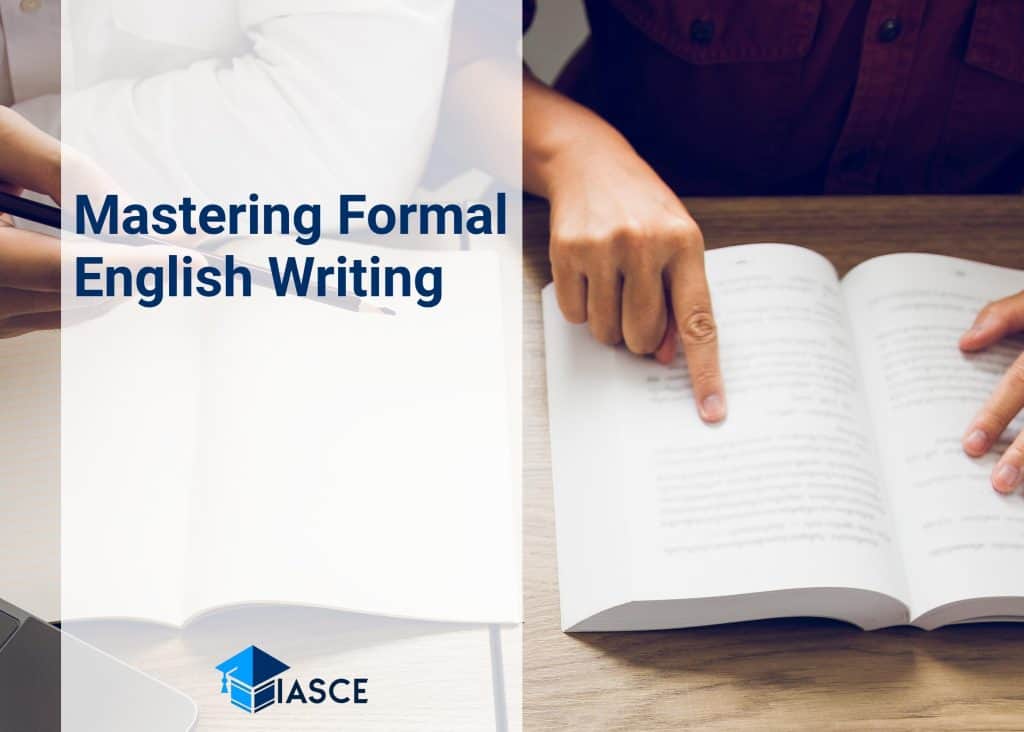Navigating the world of formal writing in English can sometimes feel like tiptoeing through a minefield, especially if it’s not your first language. Incorrect grammar, inappropriate tone, or a lackadaisical approach to punctuation could detonate your chances of conveying your message effectively. But fear not! I’m here to guide you with my list of 10 golden rules that’ll help you master this crucial skill.
From the correct use of ‘whom’, understanding the subtle differences between ‘shall’ and ‘will’, to knowing when it’s inappropriate to split infinitives – we’ll cover everything. We’re going beyond mere textbook knowledge; this is about understanding how these rules are applied in real-world contexts.
No matter what type of formal writing you’re undertaking – be it academic papers, business correspondence, or crafting eloquent speeches, these guidelines will serve as your compass leading towards clarity and precision. So buckle up; we’re embarking on an enlightening journey into the realm of polished English prose.
Understanding the Basics of Formal Writing
When it comes to mastering formal writing in English, there are a few key points I’d like you to remember. First and foremost, formality doesn’t equate to complexity. It’s all about conveying your point with clarity, precision, and respect for the reader.
The essence of formal writing lies in its objective. It aims to inform or persuade in a detached manner without any personal bias or casual language. Here are some golden rules that should guide your approach:
-
Avoid Slang and Idioms: Formal writing demands standard English. So, stay clear from colloquialisms, slang words or phrases.
-
Stay Objective: Keep personal opinions at bay. Stick to facts and present them objectively.
-
Use Third Person Point of View: Try not to use first person (‘I’, ‘we’) or second person (‘you’) pronouns.
Let’s delve deeper into punctuation – an often overlooked but vital component of formal writing:
-
Full Stops (Periods): Use these at the end of complete sentences.
-
Commas: These can be used for lists and dates but avoid using them for pauses.
-
Colons & Semi Colons: Don’t shy away from using colons and semi-colons where appropriate; they add variety to sentence structure.
Here’s a quick comparison table showing incorrect vs correct usage:
|
Incorrect Sentence |
Correct Sentence |
|---|---|
|
As we venture deeper into the ocean, we encounter… |
As we venture deeper into the ocean we encounter… |
|
In conclusion, this is my final point. |
This is my final point. |
Remember – mastering formal writing isn’t about memorizing rules; it’s about understanding their function within communication contextually. With practice you’ll find yourself naturally integrating these guidelines into your work!
The Ten Golden Rules for English Formal Writing
When it comes to formal writing in English, there’s a specific set of rules I follow. They’re not just guidelines but rather golden rules that ensure my writing is clear, concise, and professional.
-
Use Complete Sentences: Always make sure your sentences are complete with a subject and predicate. Incomplete sentences can leave the reader confused.
-
Avoid Slang and Jargon: These can often confuse or alienate readers who aren’t familiar with them. Stick to standard English as much as possible.
-
Don’t Use Contractions: While they’re fine for casual conversation, contractions aren’t suitable in formal writing.
-
Stay Active: Try to use active voice instead of passive whenever possible. It makes your writing more direct and engaging.
-
Be Precise: Avoid vague language and be specific whenever you can.
-
Mind Your Punctuation: Proper punctuation is essential for clarity in your writing.
-
Stick to Third Person Perspective: Using third person perspective maintains a level of professionalism that’s expected in formal writing.
8: Respect Paragraph Rules: Keep one idea to one paragraph for readability.
9: Keep Consistent Verb Tenses: Switching between tenses can confuse the reader so stick to one tense per piece unless necessary.
10: Proofread: Always proofread your work before submission or publication.
Let’s illustrate these golden rules with an example:
|
Before Following Golden Rules |
After Following Golden Rules |
|---|---|
|
“You know what? It’s really hard keeping up with all these grammar rules!” |
“One might find it challenging to adhere consistently to grammatical norms.” |
By following these ten golden rules, I’m confident that anyone will see improvement in their formal English writing skills!
Wrapping Up: Mastering Formal Writing
Mastering formal writing isn’t as daunting as it might seem. It’s all about understanding the rules and applying them consistently. Here are my top tips to keep in mind:
-
Keep it concise: Brevity is the soul of wit, as they say. This applies to formal writing too! Keep your sentences short and straight to the point.
-
Clarity is key: Make sure your message is clear and easy to understand. Avoid jargon where possible.
-
Stay relevant: Ensure that every piece of information you include serves a purpose.
-
Avoid exaggerations: Stick to the facts and avoid making false or exaggerated claims.
-
Proofread: Always proofread your work before submitting or publishing it.
Now, let’s take a look at some examples of these tips in action:
|
Bad Example |
Good Example |
|---|---|
|
I am writing this because… |
I’m writing this to… |
|
In my personal opinion… |
I believe… |
Remember, practice makes perfect when it comes to mastering formal writing in English! So don’t be afraid to make mistakes along the way – they’re part of the learning process!
In conclusion, remember that while mastering formal English may seem like a tall order at first glance, with consistent practice and application of these golden rules, you’ll soon find yourself navigating through complex grammatical structures with ease!

